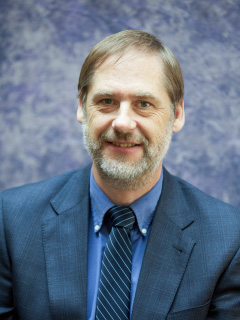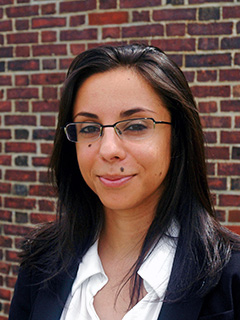DDA's 2018 Awards for Achievements in Dynamical Astronomy

Richard Fienberg Running Hare Observatory
The AAS Division on Dynamical Astronomy (DDA) has announced the recipients of its major awards for 2018. James M. Stone (Princeton University) is being honored with the Dirk Brouwer Award for outstanding contributions to the field, and Gurtina Besla (University of Arizona) will receive the Vera Rubin Early Career Prize.
 Prof. Stone is being recognized for his key role in developing computational fluid dynamics into the de facto standard tool for research in many areas of dynamical astronomy. He has developed state-of-the-art computational tools that can be applied to investigate central issues in a wide range of astrophysical contexts. His codes are widely used and have paved the way for major advances, including a much deeper understanding of the formation of stars from the turbulent interstellar medium, the structure and evolution of protostellar disks, the growth of dust to protoplanets, and flows onto and from supermassive black holes in active galaxies. In addition, Stone has mentored many students and junior collaborators and has served the astrophysical community through membership on many important committees. [Complete citation on DDA website]
Prof. Stone is being recognized for his key role in developing computational fluid dynamics into the de facto standard tool for research in many areas of dynamical astronomy. He has developed state-of-the-art computational tools that can be applied to investigate central issues in a wide range of astrophysical contexts. His codes are widely used and have paved the way for major advances, including a much deeper understanding of the formation of stars from the turbulent interstellar medium, the structure and evolution of protostellar disks, the growth of dust to protoplanets, and flows onto and from supermassive black holes in active galaxies. In addition, Stone has mentored many students and junior collaborators and has served the astrophysical community through membership on many important committees. [Complete citation on DDA website]
 Prof. Besla’s award celebrates her trailblazing research on the dynamics of the Milky Way and the Local Group of Galaxies. Besla earned her PhD at Harvard University in 2011; in her dissertation, she modeled the dynamical interaction between the Milky Way galaxy and its two main satellites: the Large Magellanic Cloud (LMC) and the Small Magellanic Cloud (SMC). Her study incorporated high-precision astrometry of the LMC and the SMC obtained by the Hubble Space Telescope and led to the surprising conclusion that the two dwarf galaxies are undergoing their first encounter with the Milky Way. Besla’s work is helping to constrain the distribution of dark matter in the Local Group by uncovering dynamical tracers of the Milky Way’s halo and making predictions for future dark-matter detectors. [Complete citation on DDA website]
Prof. Besla’s award celebrates her trailblazing research on the dynamics of the Milky Way and the Local Group of Galaxies. Besla earned her PhD at Harvard University in 2011; in her dissertation, she modeled the dynamical interaction between the Milky Way galaxy and its two main satellites: the Large Magellanic Cloud (LMC) and the Small Magellanic Cloud (SMC). Her study incorporated high-precision astrometry of the LMC and the SMC obtained by the Hubble Space Telescope and led to the surprising conclusion that the two dwarf galaxies are undergoing their first encounter with the Milky Way. Besla’s work is helping to constrain the distribution of dark matter in the Local Group by uncovering dynamical tracers of the Milky Way’s halo and making predictions for future dark-matter detectors. [Complete citation on DDA website]
Both Stone and Besla will be invited to give lectures at the next annual DDA meeting, to be held at the University of Colorado, Boulder, in the spring of 2019.

